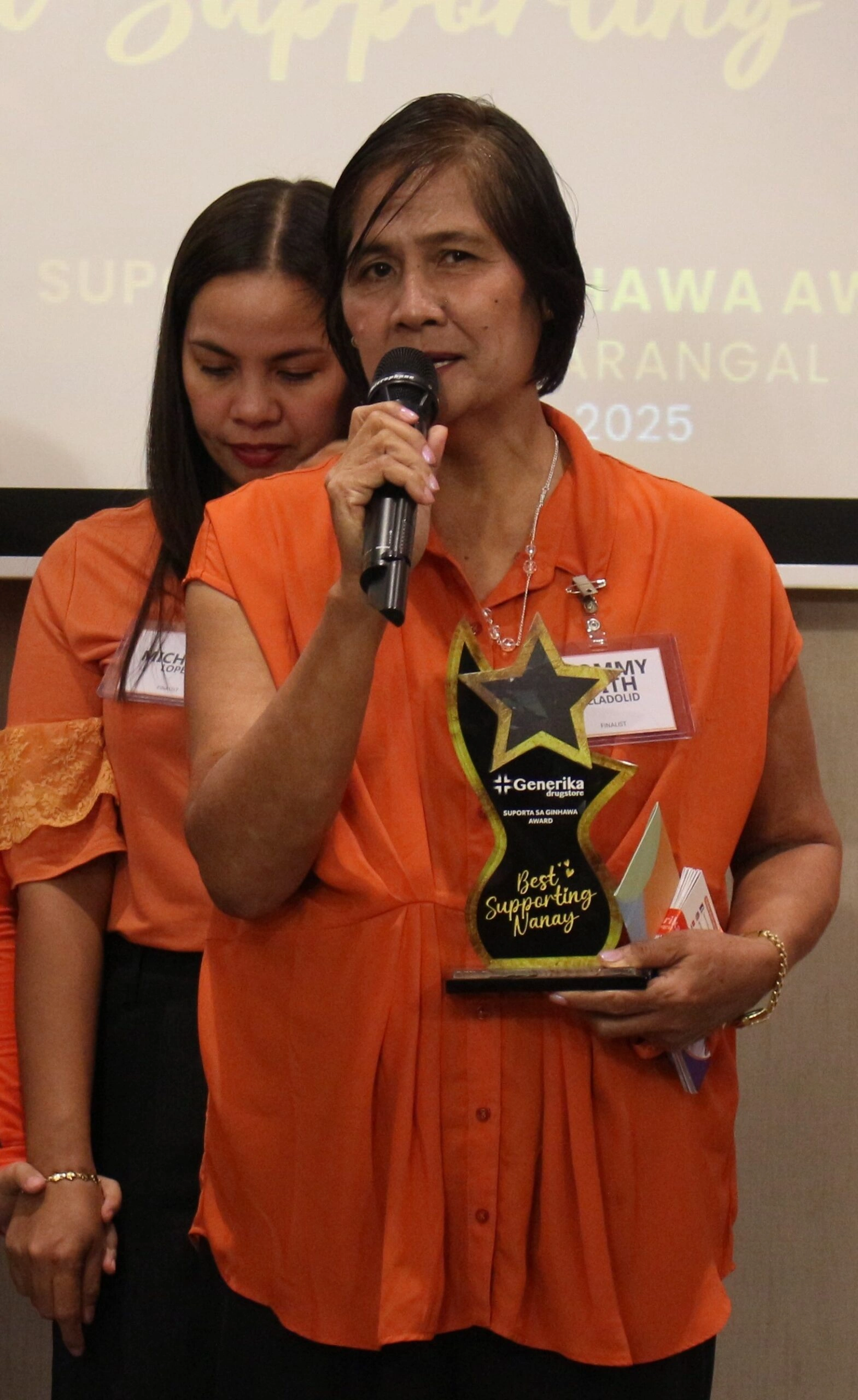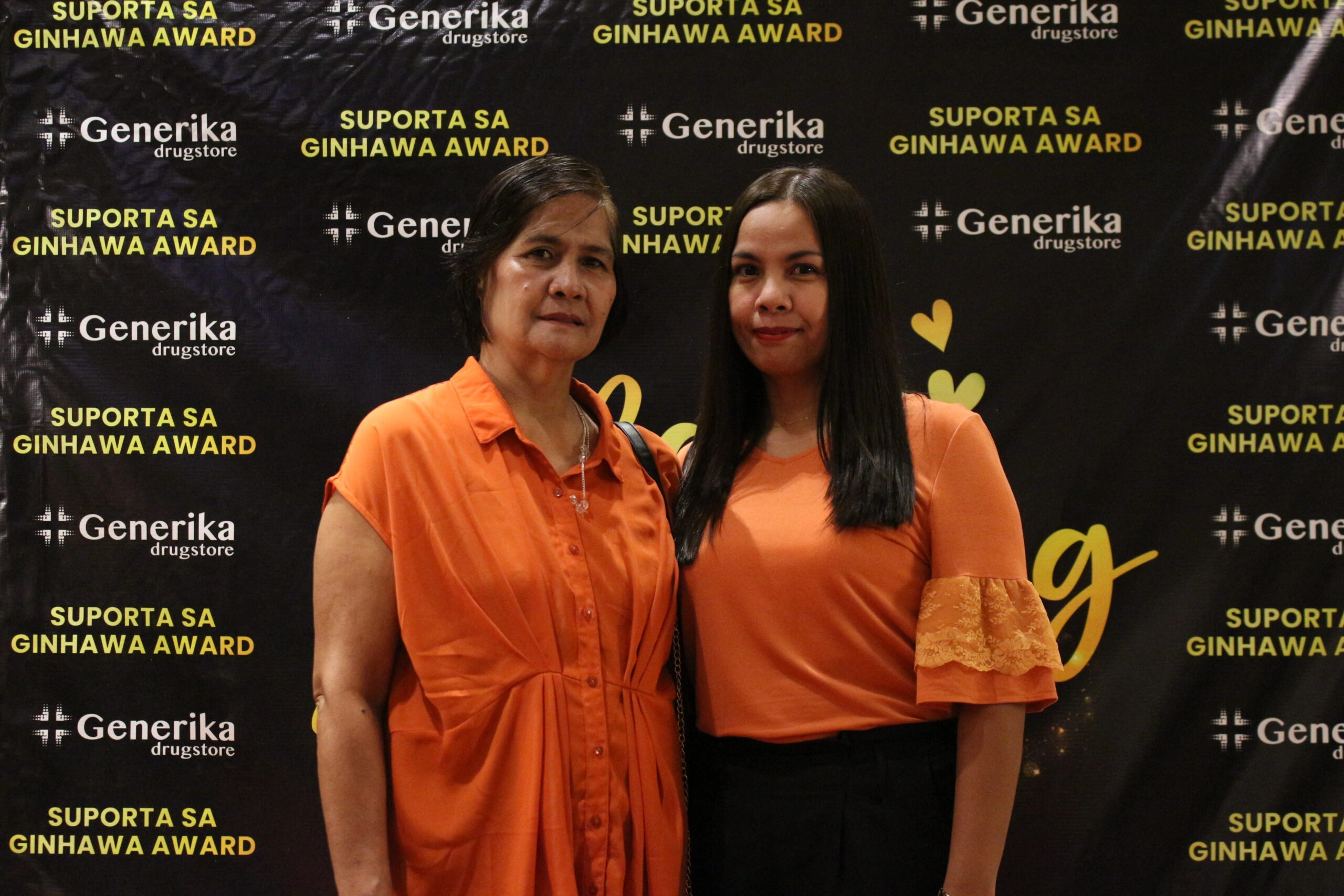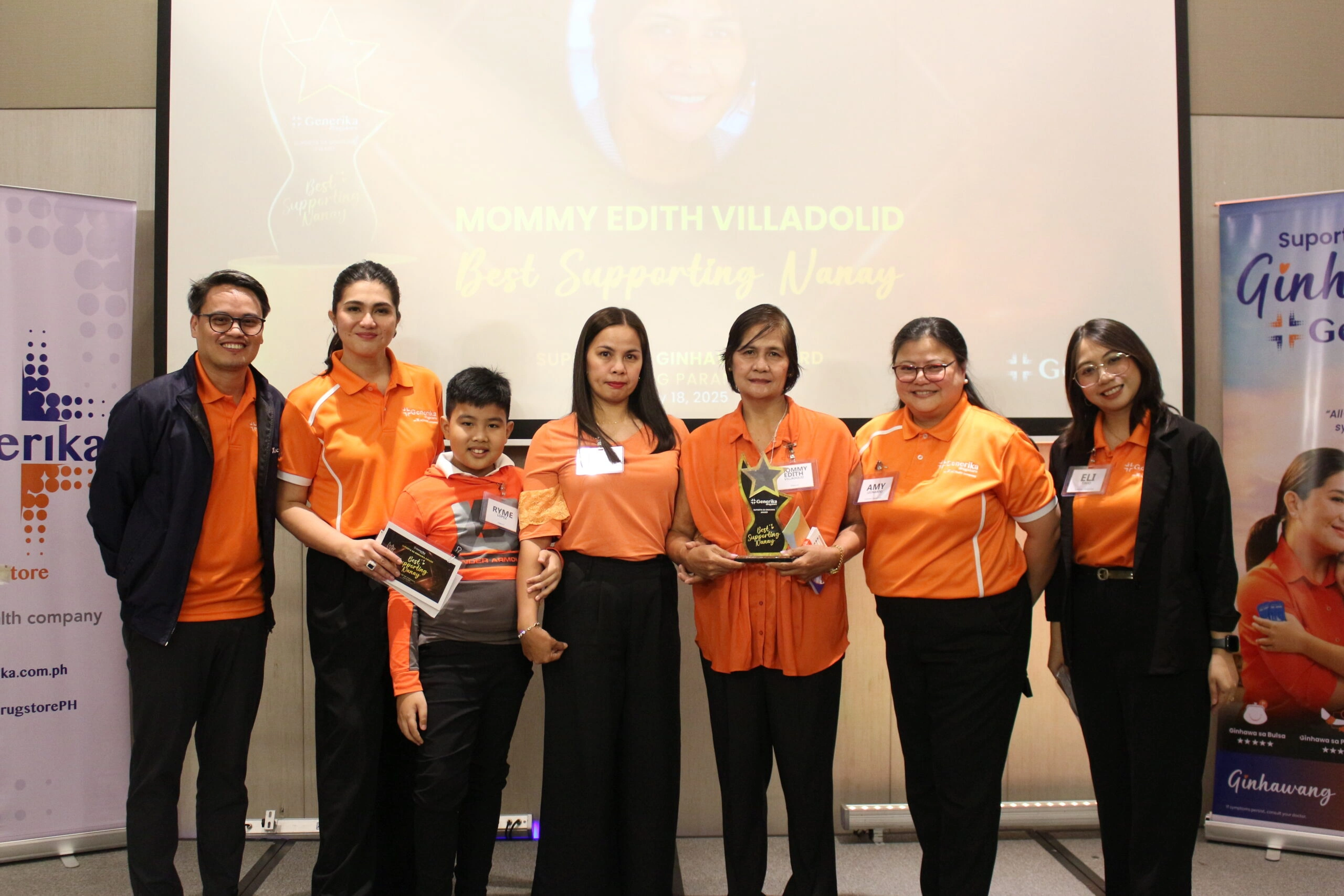In many Filipino households, “home” is less about a place and more about a person. Often, that person is a mother—or someone who never really stops mothering. So what happens when that kind of love spans generations?
What does it look like when a mother, even long after raising her own children, continues to be the steady hand behind her family’s everyday comfort?
For Michelle Lopez, the answer is simple: it looks like her mom, Edith Villadolid.
“Nauuna pa siyang gumising sa akin. May anak na ako, pero siya pa rin gumigising nang maaga para sa amin,” Michelle shares, her voice marked with disbelief and deep gratitude.
It’s a simple scene: an early morning in a quiet household, a mother already in the kitchen, preparing breakfast, ironing a uniform, and checking on schedules. But it tells you everything about Edith.

At 68, she’s a grandmother. But in the way she moves, in how she still anticipates everyone’s needs, you can tell: motherhood never left her. And she never left it behind either.
Theirs is a story of quiet sacrifice. And it’s the kind of story we often hear but rarely see celebrated.
But this year, that changed.
Michelle nominated her mom to Generika Drugstore’s Best Supporting Nanay campaign, where they were eventually named winners. It wasn’t about prizes or popularity. It was about naming the often invisible labor mothers do: the labor that keeps families whole.
“Para Sa Mga Anak”
Edith became an OFW sometime in 2004. A distant relative invited her to work in Japan, taking care of their children. Every six months, she’d leave home and fly back again, a routine she kept up for over a decade.
Michelle was only 16 when her mom first left. It was a painful tradeoff: birthdays missed, holidays spent apart, and a home that felt just a little emptier each time.
But Edith never really “left.”
Every morning in Japan, before beginning her own work, she’d call home. “Parang alarm clock si Mama,” Michelle laughs. “Tatanungin niya kung kumain na kami. Nagising ba kami sa oras. Ganun siya ka-present kahit malayo.”
She made sure she was felt, even from lands and oceans away.

The Price of Ginhawa
Edith didn’t have the luxury of choices. As a single mom, the only option was to persevere. Every yen earned in Japan went toward tuition, school supplies, bills, and, occasionally, a birthday gift her daughter would shyly ask for.
“Kapag may gusto ako, kahit cellphone, hindi niya agad sinasabi na ‘oo.’ Pero pinag-iipunan niya talaga,” Michelle remembers.
For Edith, comfort, ginhawa, wasn’t about convenience. It was knowing her children were doing well. Michelle recalls how her mom would beam with pride when she brought home medals from school pageants. “Ang ginhawa para sa kanya ay ‘yung makita kaming nagsusumikap,” she said.
That word, ginhawa, has long been part of Filipino motherhood. It’s not always about big gestures. Sometimes, ginhawa means sleeping less so your child can eat better. Or packing away your own needs so someone else in the family can dream a little bigger.
Edith is the very personification of that kind of ginhawa. Quiet. Steady. Lifelong.
The Cycle of Kalinga
Edith came home for good in 2016. But her role never paused. Now, she helps raise Michelle’s 8-year-old son. She wakes up with him, gets him ready for school, and prepares dinner before Michelle even gets home from work.
“Si Mama kasi, ‘di natatapos ‘yung pagiging nanay niya. Diba anak niya ako? Wala siyang kapaguran. Parang tuloy-tuloy ‘yung pagsuporta niya sa amin, na kahit may anak ka na, tuloy pa rin ‘yung pagsuporta sa apo ko. ‘Di natatapos ‘yung pag-aalaga niya,” Michelle reflects.
And maybe that’s the beauty and burden of Filipino motherhood: it doesn’t retire. It just shifts. The support continues. The love expands.
When asked what she hopes to pass on to her own son, Michelle doesn’t hesitate. She wants him to learn her mother’s capacity for care and the kind of love that doesn’t ask to be recognized, only returned through the life it helped shape.
Lessons from Edith
If you ask Edith how she got through the hardest years, she offers three pieces of advice:
- Tatagan ang kalooban.
- Laging manalangin.
- Isipin kung para kanino ka nagsasakripisyo.
These aren’t just motherhood mantras: they’re survival strategies. And in a time where self-care is often the rallying cry (rightfully so), Edith reminds us that sometimes, care is also about showing up again and again, even when no one’s watching.

More Than Just One Winner
There are many mothers like Edith. Some are abroad. Some are at home. Some are both. They might not carry the title Best Supporting Nanay, but they carry so much more: grocery bags, heavy hearts, family expectations, dreams they’ve tucked away, and hopes they quietly nurture.
That’s what this recognition from Generika symbolizes. It isn’t a grand coronation, it’s a pause to say, “We see you. We feel your presence. Your kind of love matters.”
Because ginhawa doesn’t always look like rest. Sometimes, it looks like the kind of care that never clocks out.
And sometimes, it looks like a mother who still wakes up at 5 a.m., just to make sure everyone else gets to start the day right.
